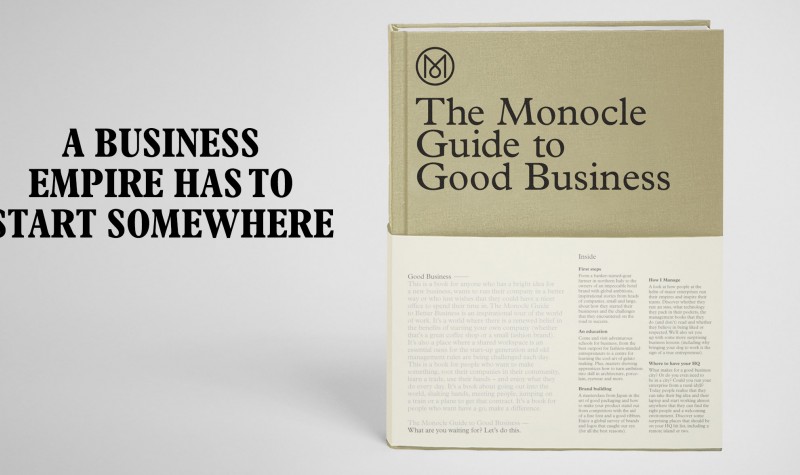1. Inspiration: Know where to start
The first thing you need is an idea (or two, just in case the first one proves daft). You don’t have to think of something that’s unique—although this can be helpful in some instances. Often a fresh approach to an old format is the perfect place to start. A good coffee shop, a friendly lawyer’s office, a modest but ambitious architecture firm, a cake shop with good buns and a nice window display: nothing new but things the public wants repeatedly.
2. Awareness: Look before you leap
Think what this means for your life—are you ready for the sweat and tears? Be clear about why you are doing this and be ready to make some sacrifices in the pursuit of happiness and satisfaction. Because while it may be momentarily glorious to tell your corporate boss that you have had enough of her and her temper, what lies ahead for any entrepreneur takes courage and involves numerous set backs.
3. Detail: Design a blueprint you can rely on
Create a plan. A really detailed one. You may not stick to it in the end but there are some essential questions you need answers to. What are your start-up costs going to be? Who will be your investors and how will they be repaid? What do you intend your profits to be in year one? Be modest, clear and honest—especially with yourself.
5. Commitment: Stick to your idea
Don’t dawdle. After you have spoken to everyone, don’t get blown off course. Your head will spin if you ask too many people for advice. Let’s say you want to start a small wine company with links from vineyard to retail. A survey of opinions will push you up and down market from Chile to Italy. But if you know your passion is for selling Spanish wines to Japan or Brazilian ones to Canada, stick with it.
19. Marketing: Let people know who you are
Choose a marketing plan—a simple one. How are you going to let people know that you have launched and that you have a new product? At every event and meeting get contacts so you can build up a database of useful names. Produce a newsletter. Print posters. Make tote bags. Just get your name in front of the right people.
26. Consistency: Work towards long-term gain
Brands are made through repetition so don’t change course too easily. OK, so they don’t get it at first but before you switch strategy make sure that you have given it a good go. It’s hard to have any credibility if you are an upscale wine store one day and a cider store the next. Often it’s not the product but the presentation that needs tweaking.
43. Pruning: Aspire to the greater good
Let people move on – don’t keep staff who are bad at their jobs. It’s one of the most painful things an entrepreneur has to do but you should not renew contracts or avoid difficult reviews if you have found yourself with staff who will never be able to help you.
50.
Have a holiday. You deserve it. Sun on your skin, a doze in the afternoon, a long, long dinner. You’ll forget it all for a few days and then you’ll find your fogged mind clearing. On the final days you’ll be revived and full of ideas for the years ahead. You’ll even have the occasional smile as you think to yourself, “I am running my own company. I am my own boss. I love what I do.”
For the full list of the steps to success and more expert advice on how to do good business, consult The Monocle Guide to Good Business.

